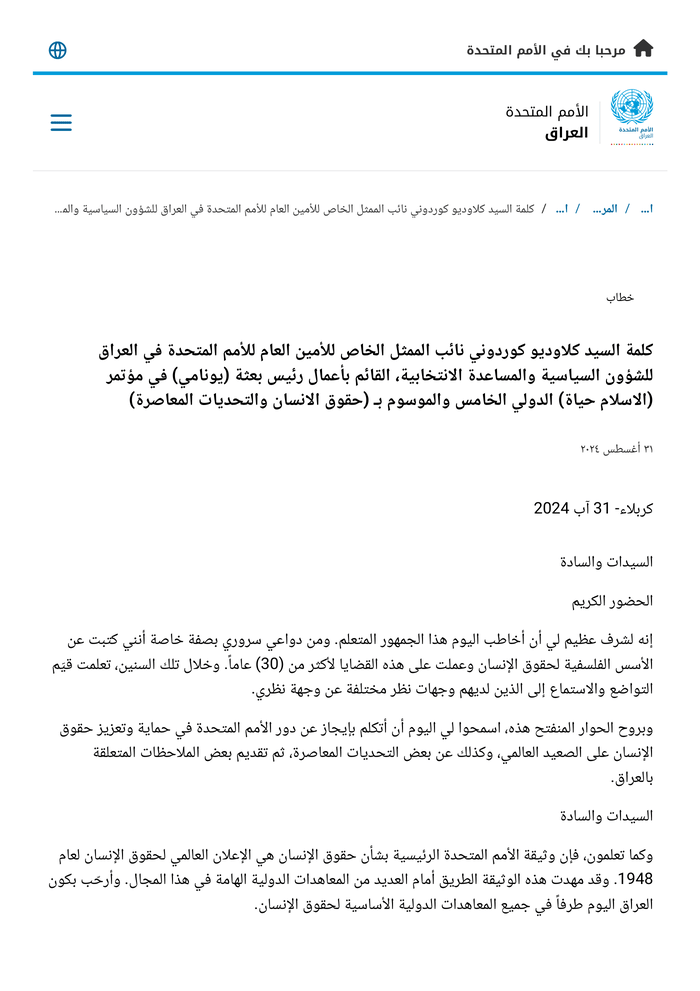Attachments
Karbala’, 31 August 2024
Ladies and gentlemen,
Distinguished audience,
It is a great honour for me to address this learned audience today. I am particularly pleased as I have written on the philosophical foundations of human rights and have worked on these issues for more than 30 years. During this time I learned the values of humility and of listening to those with different views than mine.
In this spirit of open dialogue, allow me today to briefly talk about the role of the United Nations on the protection and promotion of human rights globally, as well as some of the contemporary challenges, before offering some observations relating to Iraq.
Ladies and gentlemen,
As you know, the key United Nations human rights document is the 1948 Universal Declaration of Human Rights. This document has opened the way to many important international treaties on this subject. I welcome the fact that Iraq today is a party to all core international human rights treaties.
The Universal Declaration has also inspired regional initiatives such as the 1990 Cairo declaration on human rights in Islam adopted by the Organization of Islamic Cooperation. Despite differences between them, the two declarations share common values such as the emphasis on the inherent dignity of all individuals – the right of every person regardless of who they are.
I wish to stress here that international human rights standards are not Western standards. Many have indeed attained near-universal acceptance, as they reflect fundamental principles such as human dignity, fairness, compassion and non-discrimination that are rooted in many cultures and religious traditions, including Islam.
Ladies and gentlemen,
Among contemporary challenges is the poor record of implementation of the existing human rights treaties across the world. Take for example torture: just about every state condemns it, but it is still…

